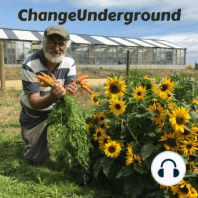6 min listen
47 #worldorganicnews 2017 01 16
ratings:
Length:
6 minutes
Released:
Jan 18, 2017
Format:
Podcast episode
Description
Links World Organic News in the Australian Podcast Awards Click here Composting: Composting 101: Take One | Zero Waste McMinnville http://wp.me/p5Cqpo-dVC Composting: 101 – Rustic Edibles http://wp.me/p5Cqpo-dVJ THE USE OF THE VERMICULTURE – micelasite http://wp.me/p5Cqpo-dWE brewing compost tea. | Dank47 http://wp.me/p5Cqpo-dWX Journey to Forever - Composting https://journeytoforever.org/compost.html *** This is the World Organic News Podcast for the week ending 16th of January 2017. Jon Moore reporting! Compost! Yes for our listeners in the snowy, frozen parts of the Northern Hemisphere, now is the time to be composting. Spring is on its way, even if it doesn’t feel like it. This week has seen quite a few posts on the gentle art of composting. From the blog Zero Waste McMinnville comes a post composting 101. An interesting background story where the author was introduced to recycling is instructive in itself. But it’s all about the composting this week. So the author has moved on from a plastic bucket. Quote: Our plastic container on the kitchen counter has recently been replaced by a designed compost bin. It has a filter and is easy to clean. With the lid kept in place there is no odor nor any enticement for fruit flies to gather. End Quote. Composting is about coming to terms with the flows of Nature. Smells and fruit flies are part of the deal. To keep ourselves healthy we must take measures like tight fitting lids and filters or remove the material from the house as quickly as possible. We are dealing with a living thing or more accurately a number of living things. The interconnectedness of these lives is what makes or breaks your compost. Composting in an aerobic process. That is, it occurs in the presence of oxygen. Anaerobic decomposition, without any oxygen, is used to produce biogas and that is whole other story. Funnily enough the blog Rustic Edibles also has a post entitled Composting: 101. Rustic Edibles describes their method: Quote: We maintain our compost pile with vegetable and fruit scraps, egg and seafood shells, coffee and tea grounds, leaves, grass cuttings and cow manure. It’s also good to alternate layers of brown and green material in order to keep the pile healthy. And of course turning the pile is good for aeration although a compost pile on the ground does permit aeration from worms and other healthy organisms. End Quote Now there is much debate amongst composters and I have tried both methods, turning the pile and leaving it. I can’t see much difference in time or outcome but conduct your own experiments. It’s a bit academic as I prefer to use a different method again: Vermiculture. That is the use of compost worms. I find the output from the worms a better matrix in which to plant but that’s just me, oh, and the blog micelasite with their post THE USE OF THE VERMICULTURE. The give a succinct but powerful explanation of the process and its benefits. Quote This method is simple, effective, convenient, and noiseless. It saves water, energy, landfills, and helps rebuild the soil. The worms ability to convert organic waste into nutrient-rich material reduces the need for synthetic fertilizers. We violate nature’s ability to complete the life cycle process when we send food down the garbage disposal, or bury it in a landfill. We deplete the soil and deprive nature from rehabilitating itself when we bypass this natural life cycle recycling process. End Quote Well put. Closing cycles is a merely matter of remembering the words of Bill Mollison: “Waste is simply a resource in the wrong place!” And landfills and garbage disposals are probably two greatest wrong places we deposit resources. In summary the post nails the advantages of vermiculture. (As an aside, this post was written by someone for whom English was not a first language. I will quote them verbatim. Quote: The Vermiculture has every more future day, since it helps the man to recycle the remains of most of the organic ma
Released:
Jan 18, 2017
Format:
Podcast episode
Titles in the series (100)
06 #worldorganicnews 2016 03 07: This week we look at urban agriculture, convertin… by ChangeUnderground
